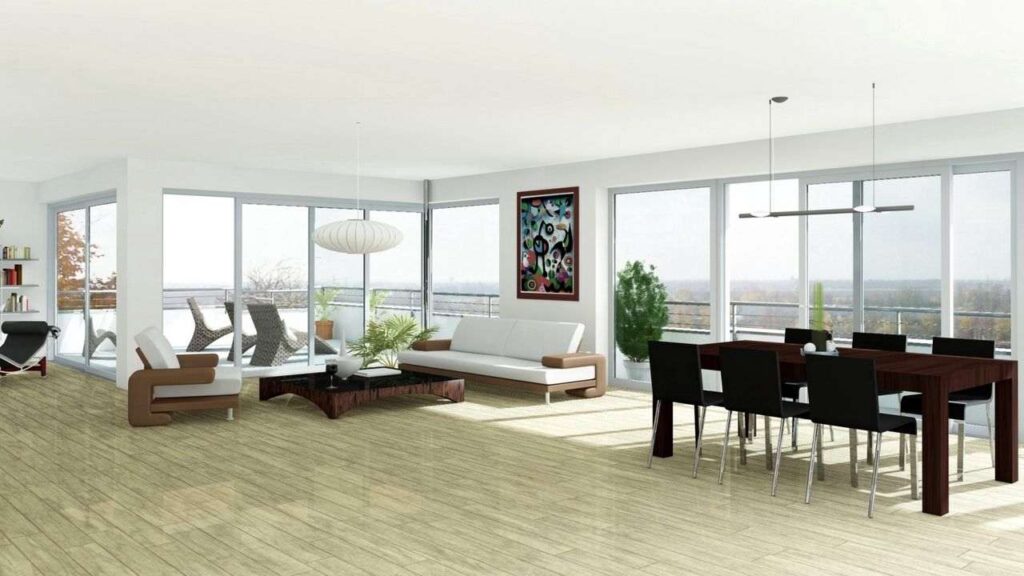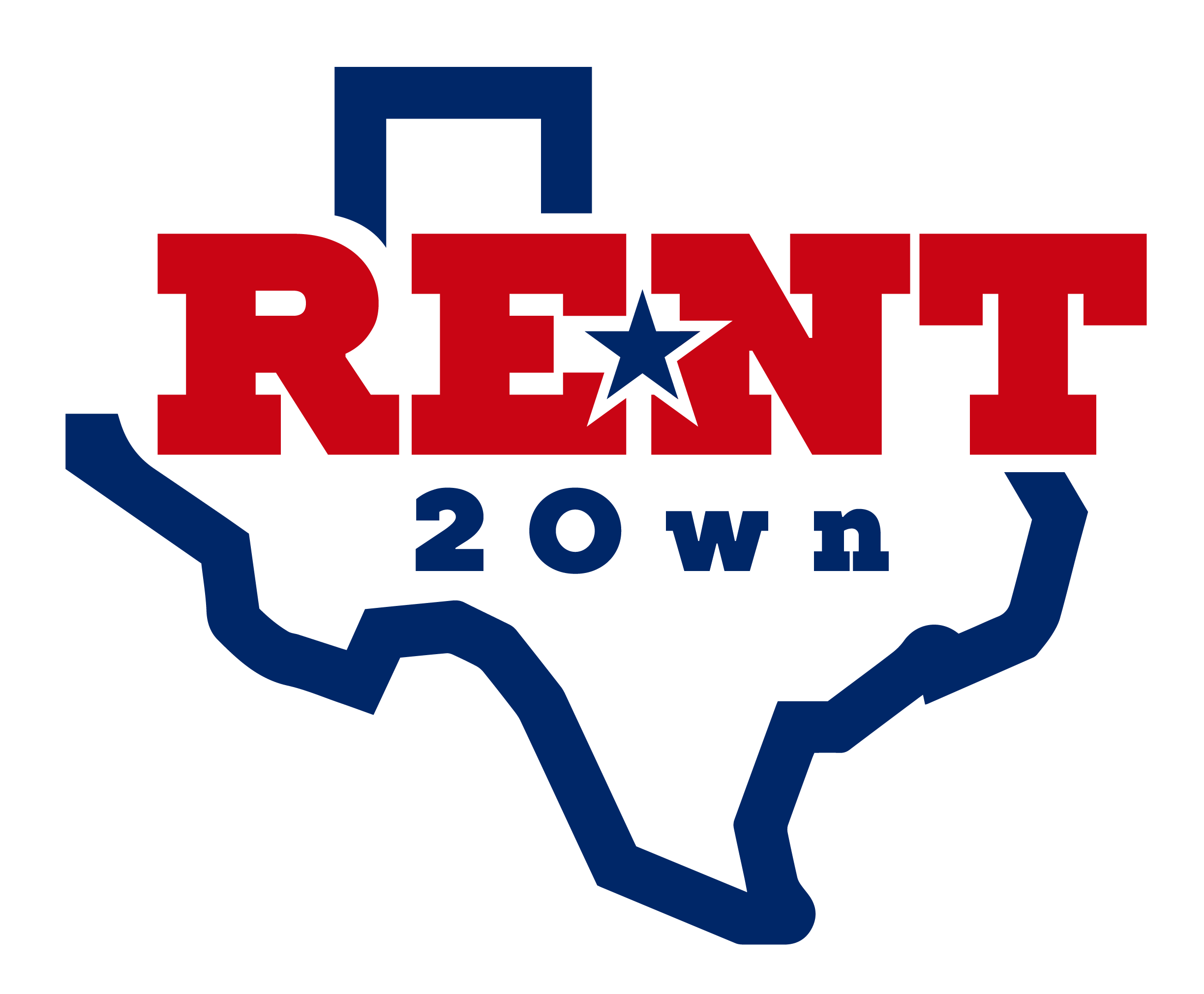Short-term rentals in Texas, facilitated through platforms like Airbnb and VRBO, have become a popular alternative to traditional accommodations, offering unique lodging experiences for travelers and additional income for property owners. The Lone Star State’s diverse landscapes and vibrant cities make it an enticing destination for short-term rental enthusiasts. However, this burgeoning industry has sparked debates over its impact on housing markets, neighborhood dynamics, and local regulations. This article by Texas Rent 2 Own explores the pros and cons of short-term rentals in Texas, shedding light on the economic benefits and potential challenges associated with this evolving facet of the hospitality sector.

Economic Boost for Property Owners
Short-term rentals offer property owners in Texas a significant economic boost by providing an avenue for additional income. By leveraging platforms like Airbnb, homeowners can monetize their properties, turning spare rooms or entire homes into lucrative short-term accommodations. This supplemental income can prove especially beneficial in regions with high tourism demand, enabling property owners to offset mortgage costs or invest in property improvements. Furthermore, short-term rentals empower individuals to capitalize on their real estate assets, fostering a sharing economy that directly contributes to the financial well-being of homeowners. However, this economic advantage can also raise concerns about affordability and housing availability in popular tourist destinations.
Economic Boost for Property Owners
Short-term rentals offer a substantial economic boost for property owners in Texas, providing a lucrative avenue to monetize their real estate. Platforms like Airbnb and VRBO allow homeowners to transform their properties into temporary accommodations, generating additional income streams. This proves particularly advantageous in high-demand areas, where the influx of tourists enhances the property’s earning potential. The supplemental income from short-term rentals empowers property owners to offset mortgage costs, fund property improvements, or even serve as a primary source of revenue. While this economic opportunity can positively impact homeowners, it also raises concerns about housing affordability and availability, especially in popular tourist destinations.
Tourism and Local Business Impact
Short-term rentals in Texas significantly influence local tourism and businesses. By providing travelers with unique and personalized lodging experiences, these rentals contribute to the appeal of tourist destinations, attracting a diverse range of visitors. The influx of tourists stimulates local businesses, including restaurants, shops, and services, fostering economic growth in the community. Moreover, short-term rentals often encourage guests to explore and engage with the surrounding neighborhood, promoting a more authentic and immersive travel experience. However, concerns arise regarding the potential strain on local infrastructure and the need for effective urban planning to ensure that the positive impact on businesses is balanced with sustainable community development.
Flexibility and Variety for Travelers
Short-term rentals in Texas offer travelers unparalleled flexibility and a diverse array of accommodation options. Unlike traditional hotels, short-term rentals provide a wide range of choices, from cozy apartments to spacious homes, catering to varying preferences and group sizes. This flexibility allows travelers to tailor their stay to specific needs, whether seeking a private retreat or a centrally located urban haven. Additionally, the personal touch of many short-term rentals enhances the overall travel experience, offering a sense of home away from home. While this variety enriches the travel landscape, it also underscores the importance of clear regulations to ensure safety and fair competition within the hospitality industry.
Income Generation and Job Opportunities
Short-term rentals in Texas not only contribute to income generation for property owners but also create job opportunities within the hospitality sector. The thriving market for short-term rentals necessitates various services, such as property management, cleaning, and maintenance, leading to the emergence of new employment avenues. Local residents often find opportunities to work as cleaners, property managers, or even experience hosts, fostering economic growth and community engagement. Additionally, the increased tourism driven by short-term rentals can stimulate job creation in adjacent industries, including local restaurants, tour operators, and transportation services. However, careful consideration of labor practices and fair compensation is essential to ensure the sustainability and positive social impact of this evolving sector.
Preservation of Historic Properties
Short-term rentals in Texas play a role in the preservation of historic properties by offering an alternative avenue for their sustainable use and maintenance. Owners of historic homes can convert these properties into short-term rentals, allowing visitors to experience the charm and cultural significance of these architectural gems. This adaptive reuse not only generates income for property owners but also helps fund the necessary restoration and upkeep of historical structures. By breathing new life into these buildings, short-term rentals contribute to the ongoing preservation of local history, ensuring that these landmarks remain an integral part of the community while sharing their unique stories with a broader audience.
Enhanced Local Cultural Experiences
Short-term rentals in Texas enhance local cultural experiences by providing travelers with opportunities to immerse themselves in the unique fabric of each community. Unlike traditional accommodations, these rentals often reflect the distinct character of their surroundings, allowing guests to live like locals. From historic homes to neighborhood-specific apartments, short-term rentals offer an authentic taste of the local lifestyle, encouraging visitors to explore and engage with the culture, traditions, and attractions of the area. This immersive experience fosters a deeper connection between tourists and the community, promoting cultural exchange and a more meaningful understanding of the destination. However, balancing this enrichment with the preservation of local authenticity requires thoughtful consideration of the impact of tourism on communities.
Neighborhood Integration Challenges
Short-term rentals in Texas present challenges related to neighborhood integration, raising concerns about their impact on the fabric of residential communities. The influx of transient guests can disrupt the sense of community, as frequent turnover may hinder the formation of lasting neighborly relationships. Noise disturbances and changes in local dynamics can create tensions between permanent residents and temporary visitors. Additionally, the commercialization of residential spaces for short-term rentals may contribute to housing shortages, altering the availability and affordability of homes for local residents. Striking a balance between the economic benefits of short-term rentals and preserving the cohesiveness of neighborhoods requires thoughtful urban planning and community engagement initiatives.
Housing Affordability Concerns
Short-term rentals in Texas have sparked housing affordability concerns as they potentially reduce the availability of residential units for long-term tenants. Property owners may find it more lucrative to convert dwellings into short-term rentals, limiting the housing supply for permanent residents. This increased demand can drive up rental and property prices, exacerbating affordability challenges for local residents. Moreover, in popular tourist destinations, the competition for available housing stock intensifies, often leading to the displacement of long-term renters. Balancing the economic benefits of short-term rentals with the pressing need for affordable housing requires thoughtful regulation and policies to safeguard the stability of communities and ensure equitable access to housing.
Zoning and Regulation Struggles
The rise of short-term rentals in Texas has brought forth zoning and regulation struggles, as local authorities grapple with updating or creating policies to manage this burgeoning industry. Zoning ordinances designed for traditional residential use may not adequately address the unique challenges posed by short-term rentals, leading to legal ambiguities and enforcement difficulties. Striking a balance between the economic opportunities presented by these rentals and the need to maintain neighborhood character often involves navigating complex regulatory landscapes. Stakeholders, including homeowners, local governments, and the hospitality sector, engage in ongoing dialogues to establish clear and fair regulations that address concerns about community cohesion, safety, and the preservation of housing stock.
Property Management and Maintenance
The surge in short-term rentals in Texas has brought attention to the critical aspects of property management and maintenance. Unlike traditional rentals, short-term accommodations demand more frequent turnover and rigorous upkeep to meet guest expectations. Property owners often face the challenge of ensuring a seamless experience for each guest, addressing cleaning, maintenance, and emergency response efficiently. Engaging professional property management service becomes crucial for many hosts to handle bookings, check-ins, and the day-to-day responsibilities. Striking a balance between property profitability and maintaining high standards of hospitality requires a strategic approach to property management, emphasizing responsiveness, cleanliness, and attention to detail to enhance the overall guest experience.
Environmental and Sustainability Considerations
Short-term rentals in Texas prompt environmental and sustainability considerations, as the increased flow of guests can impact local ecosystems and resources. Frequent turnover of guests may lead to higher energy consumption, increased waste generation, and a larger carbon footprint. Sustainable practices, such as energy-efficient appliances, waste reduction initiatives, and eco-friendly amenities, become crucial for hosts aiming to minimize their environmental impact. Additionally, the potential conversion of residential spaces into short-term rentals may strain local infrastructure and resources. Striking a balance between the economic benefits of short-term rentals and their environmental consequences necessitates thoughtful planning, regulations, and a collective commitment to sustainable practices within the hospitality industry.
FAQs:
- Is it better to rent out a furnished or unfurnished?
- Answer: It depends on the target tenant; furnished rentals are suitable for short-term leases and attract tenants seeking convenience, while unfurnished may be preferable for long-term tenants with their own furnishings.
- Does furnished affect council tax?
- Answer: Yes, furnished properties may incur higher council tax rates as they are considered to have a higher market value.
- Is it worth it to buy a furnished apartment?
- Answer: It depends on personal preferences and investment goals; a furnished apartment can attract a wider range of tenants but may require higher upfront costs.
- What should a landlord provide in a furnished property?
- Answer: Essential furnishings like a bed, seating, basic kitchen appliances, and necessities, ensuring the property is functional and comfortable for tenants.
Conclusion
In conclusion, the rise of short-term rentals in Texas unveils a complex tapestry of economic opportunities and challenges. While these accommodations provide a financial boost for property owners, stimulate local businesses, and enhance travel experiences, they also raise significant concerns. Neighborhood integration, housing affordability, and environmental impacts require thoughtful regulation and community engagement. Striking a balance between the economic benefits and the preservation of community well-being is paramount. As the industry continues to evolve, collaborative efforts among homeowners, local authorities, and the hospitality sector are essential to ensure that short-term rentals contribute positively to Texas’ vibrant cultural landscape while addressing the pressing issues of sustainability, affordability, and neighborhood cohesion.
